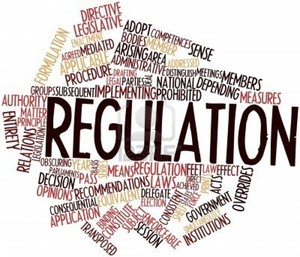It is sometimes argued that there is less clinical evidence for biosimilars. However, Tsiftsoglou and co-authors pointed out that European Medicines Agency (EMA) guidelines for biosimilars are not primarily driven by feasibility considerations or to make it as easy as possible, but to add to the totality of evidence. And it is this that finally drives the regulatory acceptance of a biosimilar [1].
Monoclonal antibodies (mAbs) are authorized as anticancer medicines (bevacizumab, cetuximab, panitumumab, trastuzumab), as immunomodulators in autoimmune diseases (adalimumab, infliximab), to prevent rejection of kidney transplants (basiliximab and daclizumab) and to treat asthma (omalizumab).
They are structurally complex and may have several functional domains within a single molecule. Heterogeneity is common to monoclonal antibodies, as it is with other recombinant biologicals. Even small changes in the production process can cause changes in the final product, these changes can be aggregates, de-amidation products, glycosylation variants, oxidized amino acid side chains, as well as amino and carboxyl terminal amino acid additions. These small changes can have a profound effect on preclinical stability and process optimization as well as therapeutic product potency, bioavailability and immunogenicity.
The European Medicines Agency (EMA) has provided scientific advice for the development of several biosimilar mAbs and consequently published a guideline laying down the non-clinical and clinical requirements for monoclonal antibody-containing biosimilars [2].
The main aim of clinical pharmacokinetic studies is to show comparability of relevant parameters in a sufficiently sensitive and homogeneous population. Due to the variability of mAbs, pharmacokinetic comparisons may have to be carried out as part of larger clinical trials in order to provide sufficient patient numbers to equal out imbalances between study arms.
For the clinical study, the basic principle is to establish biosimilarity, not clinical benefit, as this is already known from the originator mAb. Similar clinical efficacy is usually established in a randomized, parallel group, comparative clinical trial. Since clinical benefit has already been established, an endpoint, such as response rate, may be used instead of the usually requested endpoint for a new-in-class mAb, such as progression-free survival or overall survival.
The regulatory principles for biosimilars are driven by defining a scientifically appropriate clinical study design that follows the principles of biosimilar development and that adds to the totality of evidence.
Conflict of interest
The authors of the research paper [2] declared that there were no conflicts of interest.
Related article
Challenges for the regulation of biosimilars
References
1. Tsiftsoglou AS, Ruiz S, Schneider CK. Development and regulation of biosimilars: current status and future challenges. BioDrugs. 2013;27(3):203-211.
2. GaBI Online - Generics and Biosimilars Initiative. EU guidelines for biosimilars [www.gabionline.net]. Mol, Belgium: Pro Pharma Communications International; [cited 2014 Apr 18]. Available from: www.gabionline.net/Guidelines/EU-guidelines-for-biosimilars
Permission granted to reproduce for personal and non-commercial use only. All other reproduction, copy or reprinting of all or part of any ‘Content’ found on this website is strictly prohibited without the prior consent of the publisher. Contact the publisher to obtain permission before redistributing.
Copyright – Unless otherwise stated all contents of this website are © 2014 Pro Pharma Communications International. All Rights Reserved.








 0
0











Post your comment